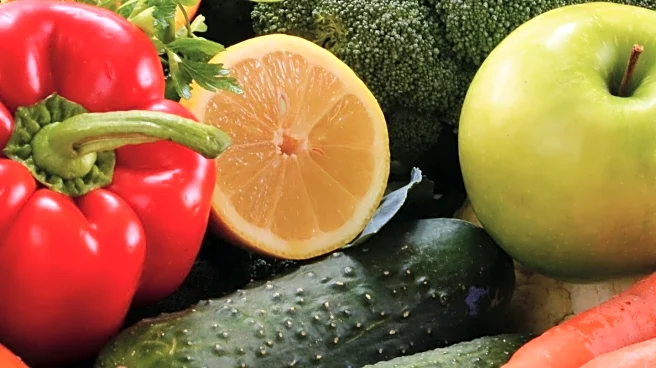What's Happening?
Recent studies and expert opinions suggest that certain foods may help reduce the risk of developing cancer. Foods such as berries, soybeans, tomatoes, green tea, and cruciferous vegetables have been identified
for their potential cancer-fighting properties. These foods are rich in antioxidants, flavonoids, and other compounds that can reduce inflammation and oxidative stress, which are linked to cancer development. While no food can guarantee cancer prevention, incorporating these into a balanced diet may lower cancer risk.
Why It's Important?
The identification of foods with potential cancer-preventive properties is crucial for public health, as it offers a proactive approach to reducing cancer risk through diet. This information empowers individuals to make informed dietary choices that could enhance their long-term health. The emphasis on natural food sources also aligns with broader health trends favoring plant-based diets. This could influence dietary guidelines and public health policies, encouraging the consumption of these foods as part of a healthy lifestyle.
What's Next?
Further research is needed to fully understand the mechanisms by which these foods may reduce cancer risk. As studies continue, there may be more specific dietary recommendations for cancer prevention. Public health campaigns could also focus on educating the public about the benefits of these foods. Additionally, the food industry might see an increase in demand for products rich in these beneficial compounds, potentially leading to new product developments.









